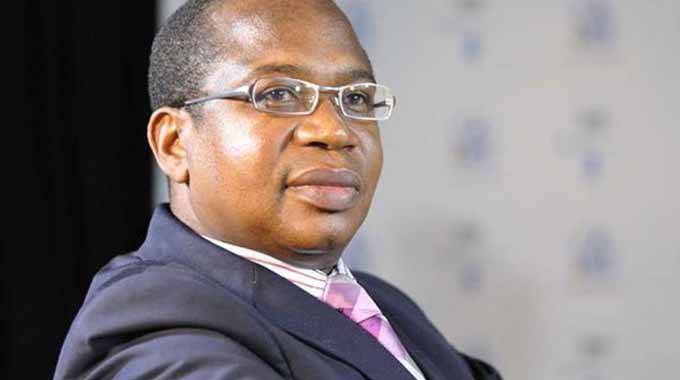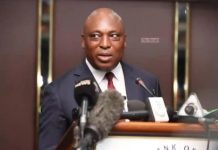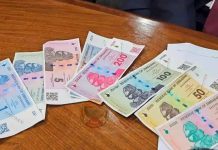IT has been a month of shock and awe moves by our monetary authorities and the government. The sudden closure of the Zimbabwe Stock Exchange (ZSE) is an unmistakeable indicator of the commencement of Finance Minister Mthuli Ncube’s warning in his letter to the International Monetary Fund that if the Bretton Woods institutions refuse to bail out Zimbabwe, an implosion of the economy of industrial proportions was imminent.
The Brett Chulu Column
We have entered the phase of economic collateral damage where doubling down on destructive economic decisions is done without due regard to the repercussions of a zero sum political dog fight. This is no speculation — data in the public domain attests to that.
The surprise directive issued by the Ministry of Information, a department which is not in the economic cluster, indicates internecine low-intensity warfare within the structures of the ruling elite. Some remarks, purportedly coming from senior politicians within the ruling elite, revealed that there is a game of musical chairs going on. Their reference to an alternative centre of power being birthed — real or imagined — show that the kiss of current economics and politics is strong. It is a shadow cast from an earlier week’s lamentation by the powers that be that there are sheep in wolf’s clothing.
The bombshell dropped on the nation, namely the unilateral ban on the stock exchange and some mobile money transactions, was a show of power, with a tacit comply-or-else warning. It was not the time for the regulatory authorities to question the economic soundness of the directive. The context was clear — a call for sober debate would be risky as binary categories had been prepared in advance: you are either a sheep or a sheep in wolf’s clothing.
Wherever Treasury is, they are watching in horror as the unfolding politics of cloak and dagger tear into the economy. Ncube’s Victoria Falls Exchange (VFEX) is all but dead in the water. It will take more than Ncube’s professorial and internationally acclaimed technocratic gravitas to convince foreign investors to invest in the VFEX when at the urge of a whim political czars decree the death of a stock market.
The IMF, in its most recent Article IV report, made reference to a weakening of the independence of Zimbabwe’s central bank and called for urgent reforms in that regard. No sooner has the ink dried on the IMF’s report than politics neutered the central bank and forced it to implement a directive from the executive, albeit in a watered down sense.
It would appear the central bank showed the political folly of shutting the main highway of monetary transactions for ordinary people. It is a political argument that won the day, not an economic one.
The matrix at the heart of the fundamental cause of our political economy troubles is well-documented.
The habitual response to the frequent economic breakdowns by our economic clusters has been to stay in their lanes, offering economic repair solutions, not the engine overhaul that is needed. For a few days the repaired economic ramshackle sputters on and soon it is back to the garage. The economic clusters do create a mess of their own but more often than not the holders of the levers of power create the mess and call upon the economic clusters to clean after them.
The economic clusters are not run by fools — they know what should be done, but cannot tell the unvarnished truth to the powers that be. Peaking truth to power would be tantamount to committing career suicide. The latest example of this is the forex auction system. The economic clusters are silent on a number of pertinent facts. They are not telling the powers that be that the mere fact that we have a forex auction market tells the world there is a serious shortage of forex in the formal system.
It is Economics 101 that a forex auction is used when the central bank has woefully inadequate forex reserves. It is also a well-known fact that a forex auction system has been used by central banks to rebuild forex reserves. Our monetary authorities are fully aware that it is nearly impossible to stabilise a domestic currency without adequate reserves. It is therefore disingenuous for our economic clusters to peddle the narrative that the auction system will solve our forex challenge and price instability.
The economic history of forex auctions in Africa consistently shows central banks failing to close the gap between the auction rate and the parallel market rates. Although it is early days yet, the domestic currency weakened further on the parallel market, crossing the 100:1 level to maintain its margin against the auction rate where the Zimdollar slid from the inaugural 57,3:1 to 63,7. You then get served with monetary policy decisions that are conflictual.
The Monetary Policy Committee (MPC) recommends that bureaux de change sell forex at the ruling auction rate. Is it not clear that with the auction rate a distant second from the parallel market, this would create manna for people to pick from the bureaux de change and fire up the market? The MPC’s decision to raise the bank policy rate from 15% to 35%, purportedly to snuff out speculative borrowing, is in contradiction with the agenda to stimulate productivity.
The central bank is on record as asserting that the auction market will help in stimulating productivity.
Which is which? How does raising the interest rate by more than 100% stimulate productivity?
The confusion is extremely embarrassing. The stock exchange is a major economic cog where capital is raised and pensions are preserved. Right now, any investor who wants to value companies cannot because all of a sudden the fair value of a company on the stock market is unknown. In one fell swoop, politics of emotion have eloquently pronounced that one invests in this country at their own peril.
The country risk premium has just skyrocketed; companies will pay an arm and a leg going forward when they apply for loans. That whimsical politically charged decree to close the stock market will accelerate economic decline beyond the 10,4% projection by the IMF. The operating environment has become so uncertain that companies will freeze many productivity enhancement projects. In a bid to halt economic decline, political knee-jerkism has compounded economic decline and set a vicious cycle of more fatal decrees as economic decline spawns socio-economic distress.
Politicians have set in motion a process of rapid economic decline where political shadows will be seen lurking from every quarter. They will double down both destructive political rhetoric and economically irrational decisions driven by politics of expediency. “Are you for us or against us?” is the new paradigm on which economic players will be forced to make decisions. My prayer is that innocent sheep will not be labelled as sheep in wolf’s clothing.
The contours of Ncube’s prophecy in his epistle to the IMF are taking shape.






